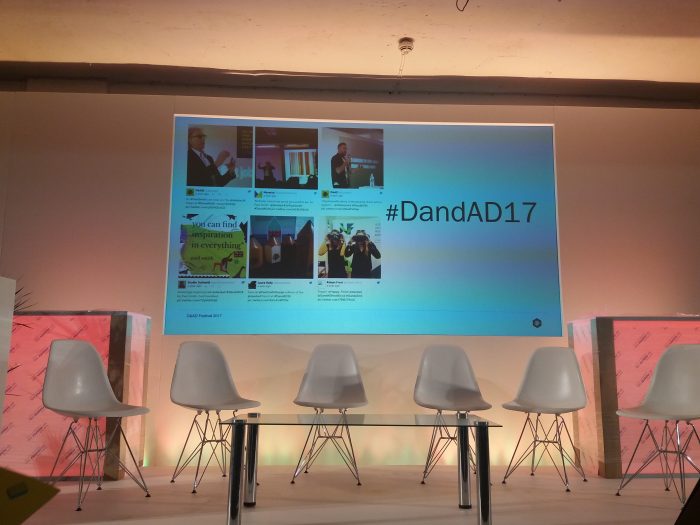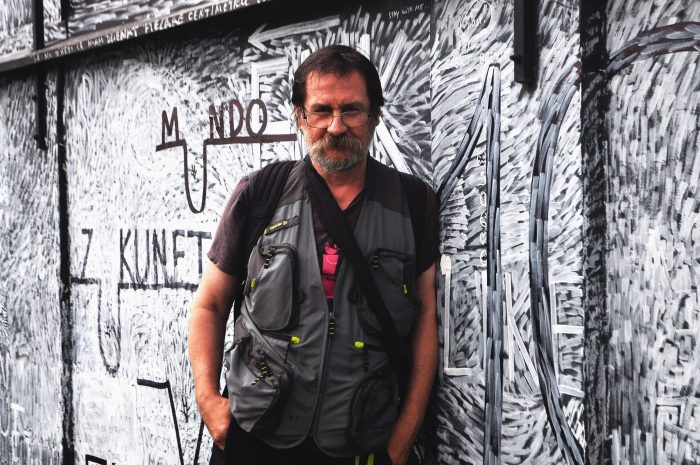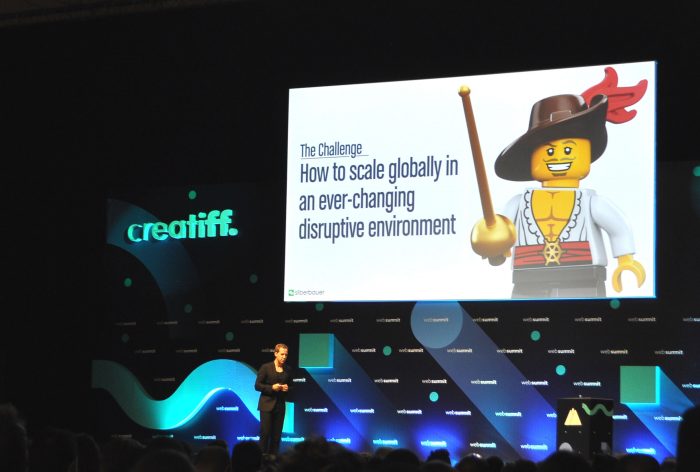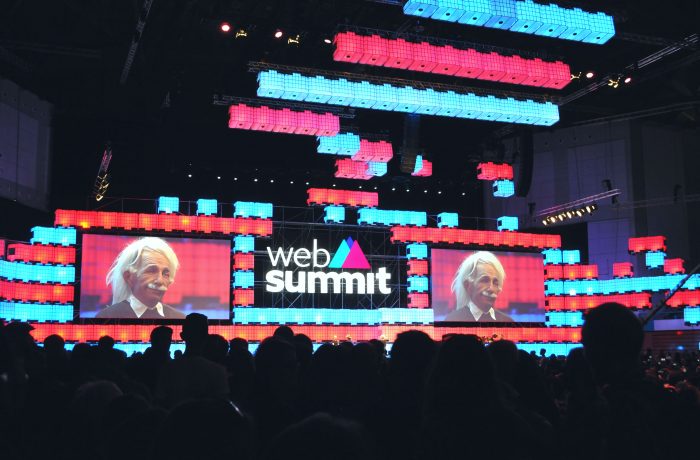An interview with the Chief Reinvention Officer: Nadya Zhexembayeva
Posted by Raluca Turcanasu on / 0 Comments
Nadya Zhexembayeva, super empowering business woman with a warm presence, was one of the keynote speakears at TEDxBucharest 2018.
I talked to her on few of the concepts she developed with her team. Read below or watch the interview at the end of the article.
Nadya developed the „Overfished Ocean Strategy” and I was curious to see how that took the initial „Blue Ocean Strategy” to a new level. But this wasn’t what her speech focused on at TEDxBucharest.
Instead she introduced another intriguing concept: the Titanic Syndrome. In a coherent storytelling manner, Nadya revelead what were the 3 factors that the team on Titanic, in their arrogance, did not take into account. And IT’S MINDBLOWING.
Watch Nadya’s TEDxBucharest speech here:
Check out an excerpt of Nadya’s book: The Titanic Syndrome and make sure to follow her.
Embedded sustainability. This is a term you coined. Could you explain it a bit, what it means, and how you came round to it?
This is a term we introduced about 10 years ago and it was a result of researching how businesses deal with the issue of sustainability. We noticed that, in a normal business, whenever you say „come to our sustainability meeting”, most employees, most managers, have this horror look in their eyes and the blood rushing away from their faces: „Why me? Why am I punished?”.
There is a general negative relationship to this word. And because of that most businesses look at sustainability as something that lives outside of the company. There is a department that takes care of it and it’s not „our normal life, our normal business”.
What we realise is that companies that are best equipped to deal with challenges are the ones who embed sustainability into their very DNA. It’s no longer a bolt-on version of reality, just a side-kick story that doesn’t relate to us, but it is embedded into the way we do business, the way we make decisions, the way we produce, the way we market, the way we do everything. So in those companies there is no department of sustainability, it’s everyone’s job and it’s often not even called „sustainability”, it’s called SMART BUSINESS.
So the idea with embedded sustainability is that if you want to not only do good for the environment and society, but also do very good for the share holders, you must marry and create a plus-plus: value for the society, value for the environment and value for your shareholders.
That’s what embedded sustainability is.
Like win-win-win.
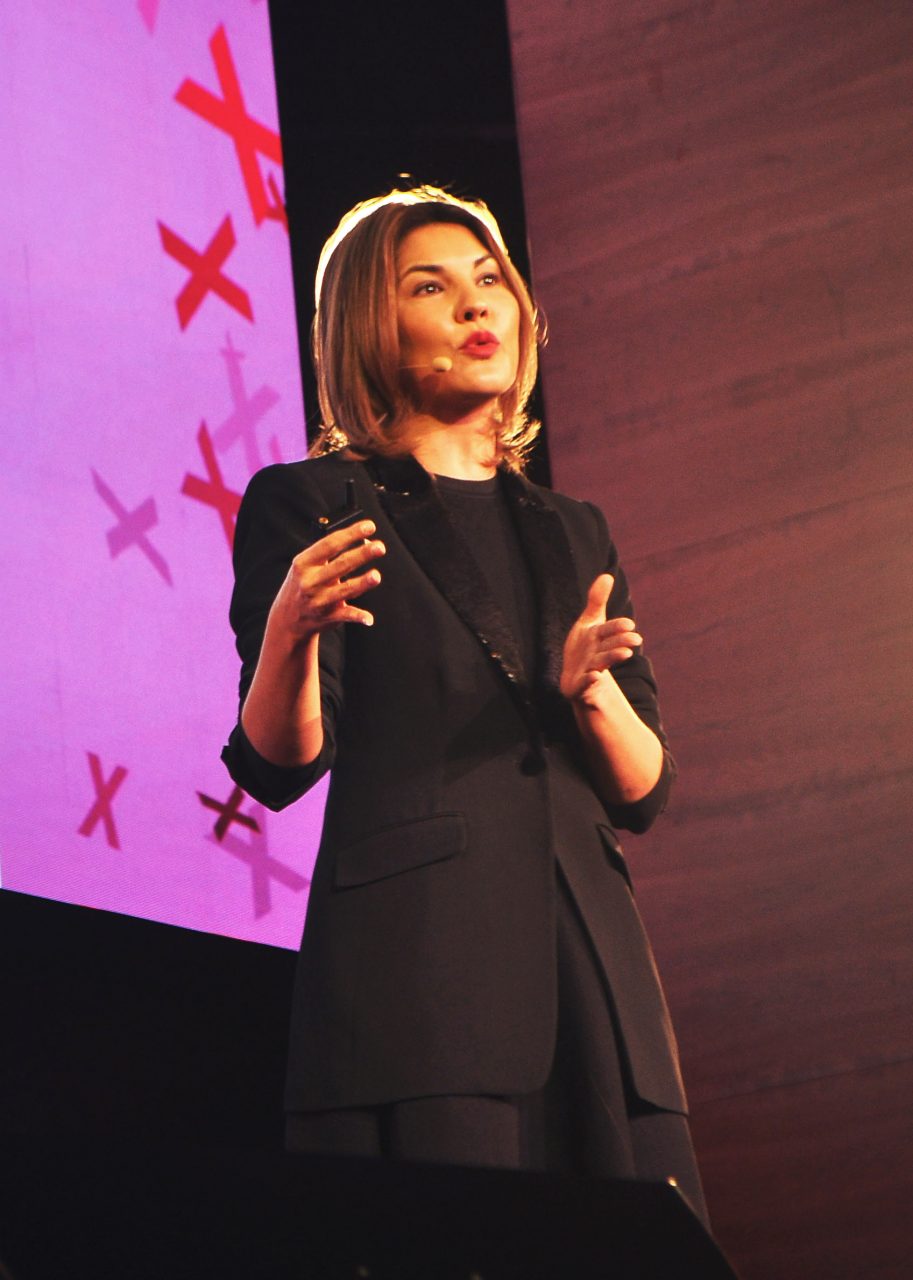
Nadya at TEDxBucharest. Photo: Raluca Țurcanașu.
Yes!
Could you give us some examples of how you helped some businesses reinvent themselves?
Sure! Most of our work is an accident, but I’ve been honored to be part of some beautiful projects throughout my life.
My very first project was being part of a team working on Green Mountain Coffee Roasters. It’s a US company that was working on completely redesigning their relationship to suppliers. So, if before, coffee was just bought from the bulk supplier, from a trader, now Green Mountain Coffee Roasters has a very close relationship to the coffee growers and creates opportunities for the win-win. It’s no longer just a transaction, it’s an actual partnership.
And this first story then lead to a second one – Fairmount Minerals. It’s a mining company. That company made sustainability the essence of what they do, but also was able to grow financially.
I’ve worked a lot in mining. One of the projects that I’m working on right now is very large, an about 75.000 people mining company. This was a publicly traded company, very known, ENRC, but at the time I became part of that comunity it was struggling with the performance. And I am very happy to be part of a crisis team that turn a company around, bringing it to the next levels. Now it’s doing well, it’s also creating completely new business, it’s creating a lot of employment and simultaneosly changing the relationship to the colleges and other social benefits.
It sounds really great and I think there should be more people like you out there!
My philosophy is very simple: you don’t need me! So every time I start working in consulting to every client I say: my job is to make us unnecessary. You should have the skills in-house, this should be part of the normal way of doing business and we do introduce normal reinvention processes, because we believe this should be normal cycle. Every company should renew itself: create teams that know how to do it, we create teams that know how to do it, we create processes that allows everyone to really transform and go with the ups and downs of the market, as a normal part of life.
So, no, we don’t need us, you need you! And you have those skills, you know, all of us are born reinventors. We have them from birth. It just takes cleaning them up a little bit and bringing them back to full use.
To connect to this idea, you also coined the term „overfished ocean strategy”. How does that build on the initial red and blue ocean strategy?
When I looked at the beautiful development of blue ocean strategy, the idea was very simple: stop competing where there’s already a lot of competition (that’s what they called red ocean, where the sharks are eating all the other fish and everyone is spitting blood everywhere).

Blue Ocean Strategy visualisation. Source.
Stop competing where the ocean is already filled, instead find the patches where nobody is presently competing.
And I thought it was a beautiful idea. But what I also recognized for myself, from the sustainability research, is that a lot of the struggles the companie have with competition has to do with the access to resources. So the ocean might be red or blue, but it’s severely overfished. There is simply not enough resources left!
So I wanted to help companies, using the same idea: let’s invent a new market, let’s invent a new product:
Start looking at resource depletion as a source of new innovation.
Because the economic ocean is severely depleted. We have seen lack of almost every resource: we have seen lack of stability, we have seen lack of predictability, the ocean is very stressed.
Now, we can act to that in a defensive manner, we can say: „we don’t do anything, nothing is possible”. Or we react proactively: „this is a business opportunity, we have new limits, how about we use them to reinvent?”.
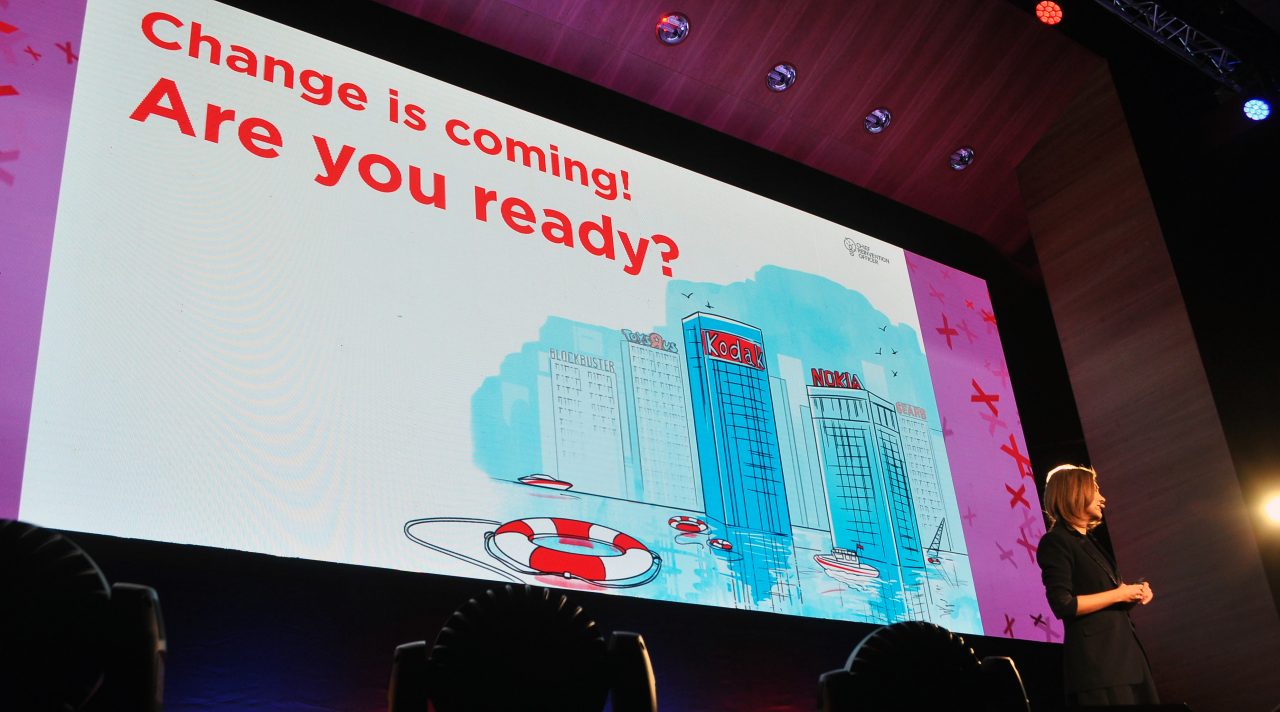
Nadya Zhexembayeva at TEDxBucharest 2018. Photo: Raluca Țurcanașu
Do these concepts apply for a country reinventing itself?
Oh, absolutely!
We can see already today countries that are thinking about putting the resource depletion at the centre of their country strategy.
And there are some other countries that are, unfortunately, completely ignoring the fact that they are coming at the end of their rope and it’s time to completely rethink how they’re gonna compete.
I think the hardest job is for countries and companies that are blessed with a lot of resources at the beginning. I come from a beautiful country, I love Khazakhstan, and ocassionally I think we’d probably be more inventive if we didn’t have the resources we have. Look at Singapore, look at Switzerland, Finland, they are countries that have nearly no natural resources but they use the limitation as a power of innovation, as a power of constant renewal. Unfortunately that’s not the case for many others.
So, absolutely, this concept applies to the personal life, to the business life or to a whole community.
Awesome! Thank you!
Would you like to transmit anything else to the community?
I wanted to use this opportunity in Bucharest as the first time I speak publicly about Titanic Syndrome. I think today this is an epidemic.
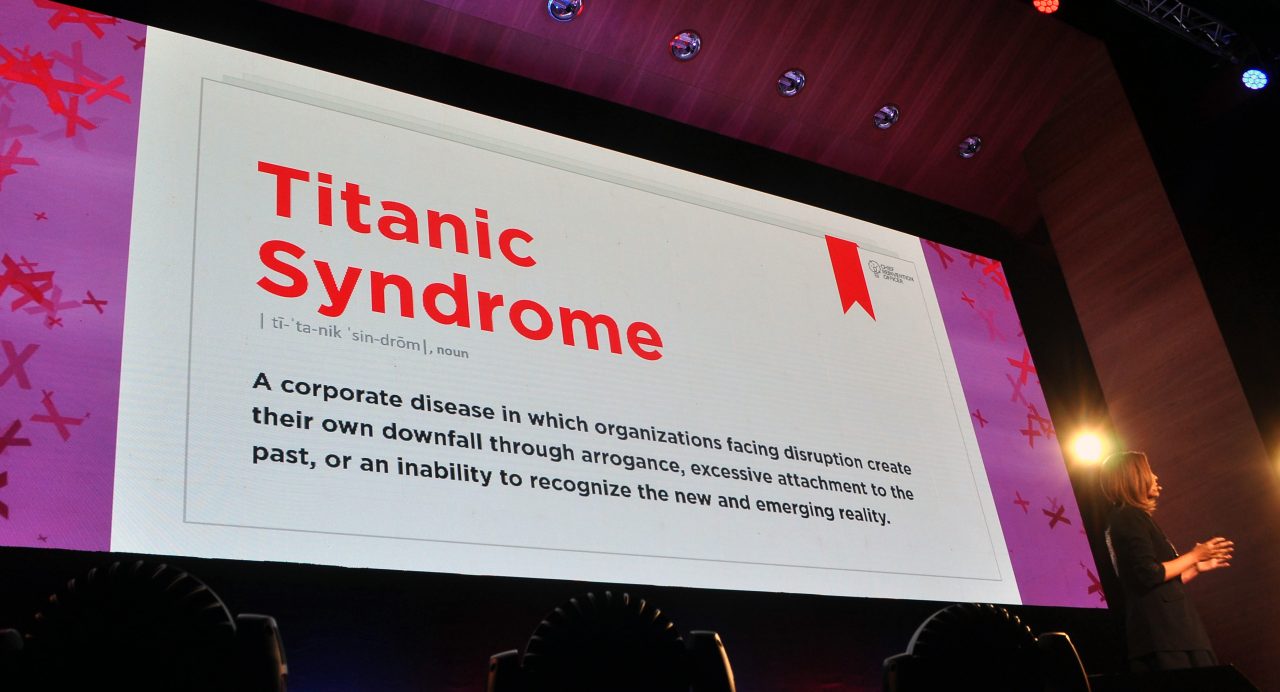
The Titanic Syndrome: Nadya Zhexembayeva at TEDxBucharest. Photo: Raluca Țurcanașu
Our arrogance, our unwillingness to see the facts, our attachment to the past, how easy it is to say „oh, we’ve always done it this way” or „we’ve done it a thousand times”. This is becoming not just an unpleasant little culture problem but a survival problem.
If before we could afford being arrogant, because we had looong life cycles, the world was living in a very slow pace and you could become arrogant and still survive, today life doesn’t give you that choice. You look to the sum of the beautiful, most powerful companies in the world going down in a matter of half a year and it’s because they thought they have time.
So I want us to become very comfortable with pointing a little emergence of the Titanic Syndrome in others and in ourselves.
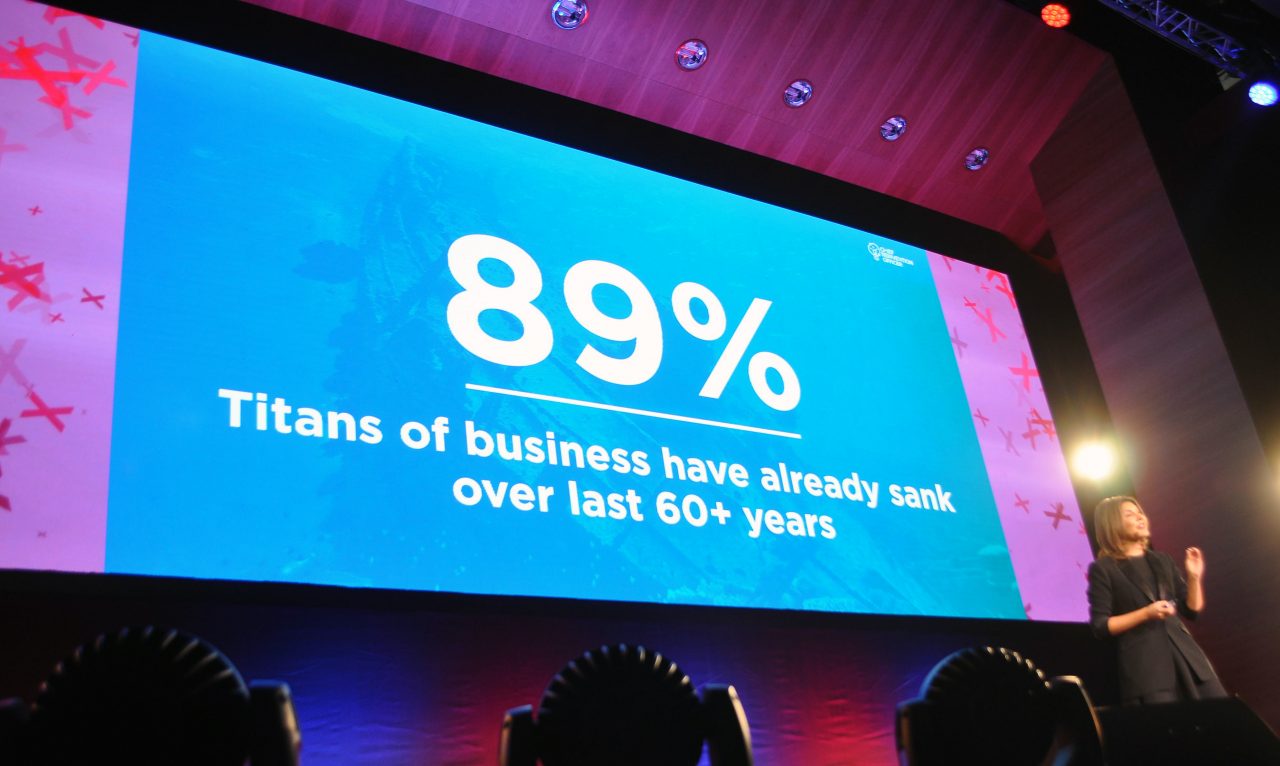
Nadya Zhexembayeva, Chief Reinvention Officer at TEDxBucharest. Photo: Raluca Turcanasu
My daughter makes fun of me now, she’s almost 15 and she says „Mom, I think you’re developing a little infection of the Titanic Syndrome here”. And I am thankful for that, because every one of us can get infected, it’s only an issue of spotting it on time and using it as a jump-off to a new version of yourself.
That’s the most important thought I had for this speech:
Let’s not see change as a horrible enemy. Let’s look at it as an opportunity to renew and do everything possible so that we don’t develop a case of the Titanic Syndrome.
Thank you very much, it’s been really empowering!


